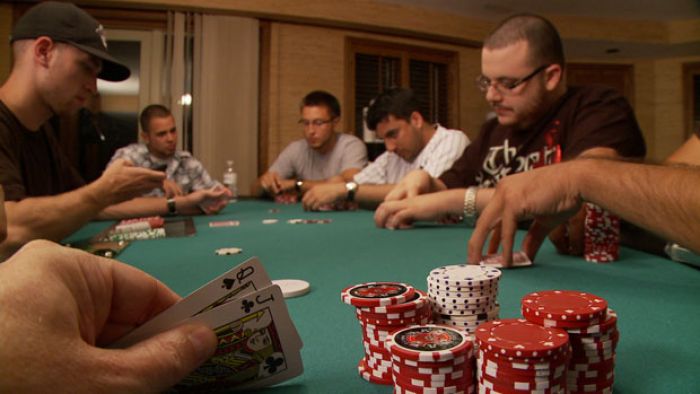
When Kevin and his friends on The Wonder Years got together for a night of poker, it was a different time - the early 70’s on the TV show. Jump ahead to 2013, and the WPT is marketing a poker game to kids. Even Strawberry Shortcake’s selling playing cards. It raises the question, how young is too young to start playing poker?
Rising popularity of poker in society
We all know just how popular poker is, but we may not realize just how closely our society embraces it. Poker is not just a game, but rather, it has become a sport of epic proportions. Just look at the insane amount of coverage the World Series of Poker tournaments get on the media.
Believe it or not, poker is the most watched sport on cable TV after auto racing and American football. Decks of cards can be found in convenience stores, book shops and even candy stores.
Famous poker professionals like Phil Ivey and Phil Hellmuth are put on pedestals fit for a Hollywood star, with both poker fans and the general public looking up to them and some even considering them the ultimate role model. Universities like the MIT offer poker and Texas Hold'em courses, much to the delight of students who find it easy to apply the benefits in real life and in the corporate world after graduation.
With poker making its presence known in so many aspects of our lives, it's only fair to hear some of us questioning whether or not children should be exposed to the game of poker. Let's explore reasons why poker, along with bridge, Monopoly, backgammon and Texas Hold'em, can present many benefits in youths if taught properly from a young age.
Why kids should learn poker at a young age
● Strengthen bond with family. A family who eats together, stays together, right? But consider this: a family who plays poker together, have fun and get to know each other even better. Not only will you spend valuable time together (watching TV and texting do not count!), but it'll also help build confidence, develop social and language skills and basically create lasting memories as a family.
● Improve kids' memory. If you didn't already guess, memory is an integral part of being successful in the game of poker. By learning the rules, ranks and suits of the cards as well as order of hands, youths can hone and improve their memory which will benefit them in school and studies.
● Learn to consider risks. Unlike adults, teens and youths may find it hard to grasp the concept of risk and reward due to their lack of life experiences. This is where poker jumps in to save the day - parents can impart poker lessons and relate it to real-life consequences as they teach the child what it means to go all in without weighing risks beforehand.
● Practice money management. Besides Monopoly, kids can play poker and learn better money management. As they find ways to manage their chips in poker, so will they gradually learn that it's wise to preserve assets and use them in anticipation of that golden opportunity they've been waiting for?
● Learn patience and perseverance. We humans are notoriously impatient creatures. We constantly need to be instantly gratified, and perhaps that's why teaching poker to youths isn't such a bad idea after all if it guides them to be more patient and perseverant individuals. Poker cautions players against making moves foolishly and impatiently, and that waiting for that right moment would pay off very handsomely.
● Instill higher sense of discipline. More and more parents are turning to unconventional poker lessons as a means to teach discipline to their kids. What's more, the beauty of this is that the kids themselves aren't aware that they are taught discipline. Poker players are a highly disciplined bunch as they've been trained to ignore distractions and destructive impulses that will cause them to lose their chips. Similarly, poker teaches kids to be disciplined and focus on their goals in order to achieve rewards, be it studying for an exam or doing chores.
● Encourage social skills and decision making. Poker lessons help prepare youths for when he or she enters the corporate world where good decision making skills will make a world of difference in business. Not only that, kids will learn math without realizing it, and love it enough to discover that the subject isn't so difficult to grasp after all.
Conclusion
There are virtually more benefits of teaching poker to youths out there that we've not begun to cover, but with all that's said and done, parents should definitely take the initiative to impart knowledge and at the same time, monitor their progress. If you're concerned about kids gambling and playing poker for all the wrong reasons, you may start by just using chips or tiny stakes. In time, you'll realize the benefits outweigh the disadvantages.









